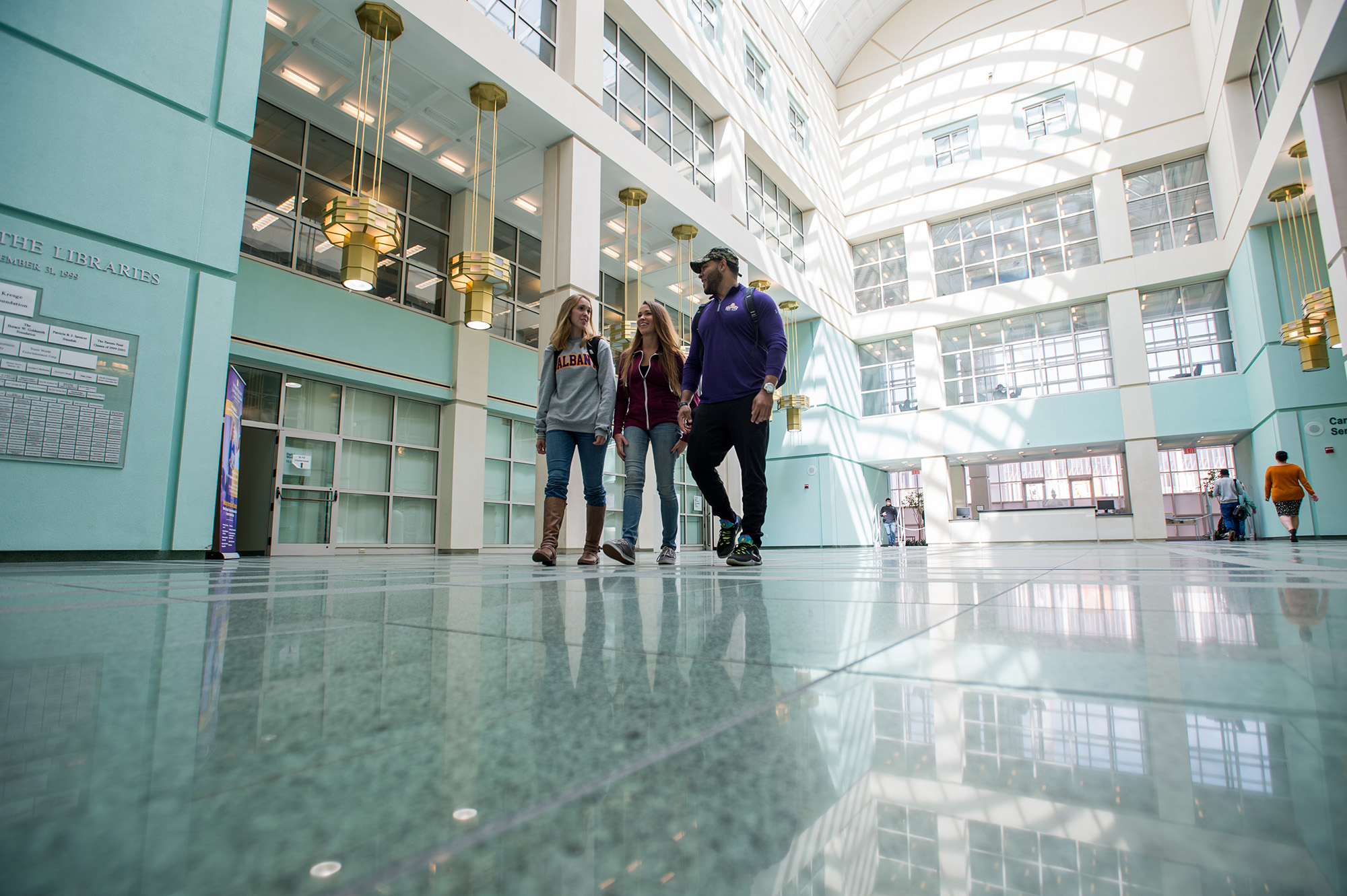Learning objectives that UAlbany students are expected to attain through their course of study within their academic program.
Bachelor of Science
- Understand the history and structure of social work as a profession and social work roles.
- Demonstrate a commitment to personal growth including the professional use of self.
- Identify as a professional social worker, including understanding and applying the profession’s values and ethics, and committing to continuing their professional growth and development.
- Understand the processes of critical thinking and apply critical thinking in beginning professional practice.
- Use communication skills differentially and appropriately with a variety of client populations, colleagues, and members of the community in such activities as verbal interaction, interviewing, and report writing.
- Examine and apply knowledge of human diversity that reflects an approach to practice that is both culturally sensitive and responsive.
- Understand the theories and mechanisms of oppression, discrimination and power, and apply the strategies and skills of change that advance human rights and social and economic justice.
- Understand and apply qualitative and quantitative research methods including defining the research problem, developing and testing hypotheses, sampling, ethics of research, reliability and validity, logic of causal inference, basic data analysis, clinical research, and program evaluation.
- Understand the impact of information technology and how it relates to social work practice.
- Understand and apply bio-psycho-social-spiritual aspects of normal growth and development, and use theoretical frameworks to understand the interactions among individuals and between individuals and social systems.
- Understand and apply bio-psycho-social-spiritual aspects of non-normative behavior, including psychopathology and the DSM, and the interactions among individuals and between individuals and social systems.
- Understand and apply knowledge of clinical and non-clinical group dynamics.
- Understand and apply knowledge of the behavior of larger social systems (groups, organizations, and communities).
- Understand and carry out non-clinical social work roles (e.g., broker, advocate), including engaging in policy practice, at a beginning level.
- Understand and apply knowledge of social welfare policy: History of social welfare, policy process and value choices, content of basic social welfare programs (e.g., TANF, SSI, Social Security); understand the organization of social welfare as an institution; carry out policy analysis at a beginning level.
- Understand and apply theories of organizations and how they work and relate to the community; organizational context of practice; organizational change; social psychology of organizational behavior; and administrative and supervisory practice.
- Develop skills in promoting sustainable changes in service delivery and practice to improve the quality of social services and human environments.
- Understand beginning social work practice within a global perspective.
- Understand and carry out evidence-based practice at a beginning level in all phases of the helping process (engagement, assessment, intervention, termination, and evaluation) with individuals, families, groups, organizations and communities.
- Understand and apply at beginning level theories of social work (e.g. psychodynamic, behavioral, cognitive-behavioral, systems, ecological, task-centered, problem-solving, feminist, strengths).









